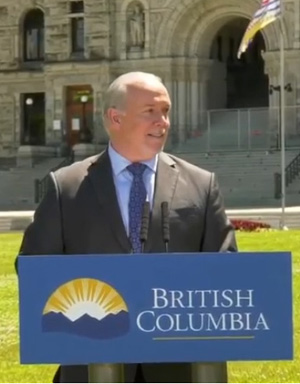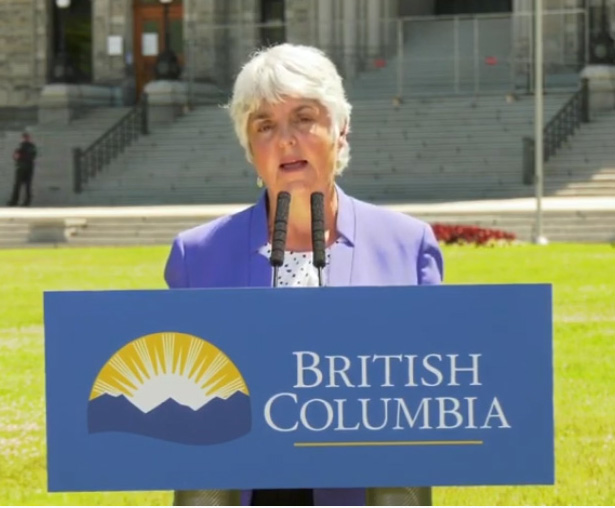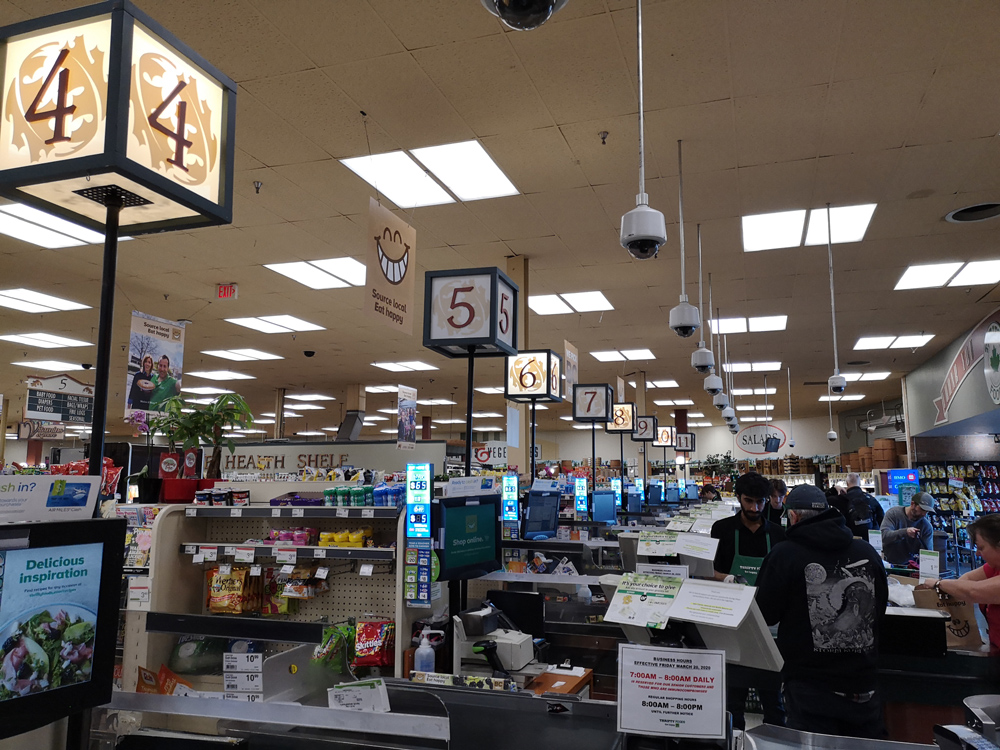
Thursday June 18, 2020 ~ VICTORIA, BC
by Mary Brooke, editor ~ West Shore Voice News
UPDATE: Here’s where to get updates on town halls and other ways to participate. https://engage.gov.bc.ca/recoveryideas/ways-to-participate/
British Columbians are invited to share their feedback as the Province continues to build a strong economic recovery that works for people. That was Premier John Horgan’s big announcement yesterday on a sunny day on the front lawn of the BC Legislature.
Also addressing British Columbians yesterday was Finance Minister Carole James, equally exciting about opening up the playing field for ideas from the public about how the province should be moving forward after the initial big impact of the COVID-19 pandemic.
“The pandemic has been challenging, but our province has already accomplished so much in this fight, thanks to British Columbians. We are at our best when we work together, and that’s how we’re going to move forward,” Premier John Horgan said.
“Throughout the pandemic we’ve been meeting with businesses, labour, First Nations, not-for-profits and more to get their perspective. We’ve heard lots of good ideas, and we are taking action. We want to hear directly from British Columbians to make sure the recovery works for them.”
Three ways for people to share their ideas, experiences and priorities:

- An online survey is the fastest and easiest way to provide answers to some important questions and give advice. Visit: http://gov.bc.ca/recoveryideas
- Respond to the paper, Building B.C.’s Recovery, Together: Have Your Say, which was released on Wednesday, June 17, 2020. Ideas and responses can be submitted to: recoveryideas@gov.bc.ca (mailto:recoveryideas@gov.bc.ca)
- Participate in virtual town halls. British Columbians can learn more about the virtual town halls here: http://gov.bc.ca/recoveryideas
Policy-making and economic effects:
Building B.C.’s Recovery, Together describes the values the government considers foundational for economic policy-making in the months ahead. It also details the economic effects that COVID-19 has had on B.C., in particular the job losses, and how those losses have been felt across different communities. Nearly half of all jobs lost due to COVID-19 have been in accommodations, food services and retail. Women, young adults and low-wage workers have all experienced relatively greater job losses.

“The recovery is going to be a tough task, and we need to be open to new ideas and new approaches. At the same time, core B.C. values like equity, taking care of each other, sustainability and reconciliation have not changed,” said Carole James, Minister of Finance.
“In practice, those values will take the form of more good-paying jobs, advancing reconciliation and meeting climate goals, and growing an innovative, resilient economy that works for people,” said James.
Job losses during COVID-19:
Over 314,000 jobs were lost during the pandemic, said Minister James. The impact was reflected in age, gender, income level, and economic sector, the finance minister explained.

The service sector saw 90% of the job losses. Largest unemployment tallies have been seen in accommodation, food service and retail.
The lowest wage earners have been the hardest hit. The majority of job losses have been among people working at or near minimum wage. “Young people and women have been the most vulnerable,” says Minister James, adding that youth comprised 29% of the COVID-period unemployment figures in the service sector, and women being 60% of that sector’s job losses.
Employment figures were seen to be up for men and women in May, but women were more likely 25% to have lost job their job. “Women have most of the caregiving responsibilities for children and other family members,” says James.
“Behind those statistics are people who are worried about their future and their children’s future,” said Minister James at the podium after Premier Horgan spoke on sunny Wednesday afternoon.
Opportunities in the economic restart:
BC is starting with place of strength, with capacity for research, innovation and entrepreneurship, said Minister James. BC’s natural resources and geography are plusses. “The most important advantage is our people,” she said.
“As we’ve done from first budget in 2017 we need to remain focussed on priorities, invested in people, and delivered services people count on.” said James. She’s working for “a sustainable economy with good jobs in every corner of our province”.
Minister James says that COVID-19 has shone a light on gaps in society and has highlighted areas of critical importance. Strong public services and supports, workplace safety, and collective responsibility to take care of each other are things that James highlighted. “There is now an opportunity to address gaps, build on strengths and more,” she said.
“The BC recovery plan will be based on values of British Columbians,” said James. She said that includes action on climate change, rights of indigenous people, addressing inequality, and a strong resilient innovative economy that leaves no one behind.
This requires everyone to participate, she said, and she hopes to identify barriers and strengths through the public input, to determine what are there priorities are for the province.
The government’s recovery plan will include attention to the supply chain, buying local, and procurement. James highlighted the importance of technology in businesses retooling, the ability to learn and to work at home.
The gig economy is here to stay in BC, as a way of being flexible amidst economic opportunities or lack thereof.
Minister James also noted that due to COVID we’ve seen how critical that public services are to the stability and function of the economy, including the components of child care, education, transportation.
Three priorities when the pandemic hit:
When the pandemic hit, government acted immediately, focusing on three main priorities: protecting people’s health; providing income, rental and other supports for families and businesses; and ensuring things like groceries, public transit and child care for essential workers remained available.
Essential businesses remained open safely during the pandemic, and starting last month the province began a process of restarting safely.
![Hon John Horgan, MLA [Langford-Juan de Fuca]](https://islandsocialtrends.ca/wp-content/uploads/2020/04/LFDJdFConstituency-WSVN-covid-banner-728x90-web.jpg)
===== LINKS:
Learn more about B.C.’s economic recovery planning: http://gov.bc.ca/recoveryideas
For information about B.C.’s Restart Plan, visit: http://gov.bc.ca/restartbc
For the latest medical
updates, including case counts, prevention, risks and testing, visit: http://bccdc.ca/
Or follow the BCCDC on Twitter @CDCofBC.
For the provincial health officer’s orders, notices and guidance, visit: http://gov.bc.ca/phoguidance
For non-health related information, including financial, child care and education supports, travel, transportation and essential service information, call (toll-free) 1 888 COVID19 (1 888 268-4319) between 7:30 a.m. and 8 p.m. (Pacific time), seven days a week, or visit: http://gov.bc.ca/Covid19




